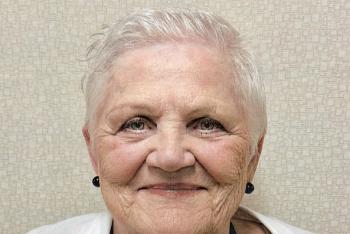Heart attacks and panic attacks share similar symptoms like chest pain and shortness of breath, but...
Read More

If you’ve heard it once, you’ve heard it a thousand times: protect your health with exercise and healthy eating, get screened, pay attention to your symptoms. But doctors say it again and again (and then again) because not only can it literally save your life, but many people aren’t listening, says Thomas Moccia, D.O., a cardiologist at Inspira Medical Center Mullica Hill and a provider member of the Cardiac Partners network of physicians.
When something goes wrong with your heart, there’s no limit to the damage it can inflict – from heart attacks to strokes to a chronic disease that you’ll manage for the rest of your life. You know what changes to make, so now it’s time to act.
More often than not, heart disease doesn’t spontaneously appear, although it may feel that way if you’re not paying attention. It creeps up slowly, building over the years, and it takes an experienced eye to catch it early.
“At the first sign of heart disease, we start by doing a thorough history and physical exam,” says Moccia. “Then if needed, we can perform additional testing such as bloodwork, an echocardiogram, an ultrasound that looks at the heart’s ability to pump blood, or stress testing.”
Inspira is set to introduce 2 additional testing tools in fighting heart disease, calcium scoring and coronary CT angiography. Calcium scoring uses low levels of radiation to help doctors detect if there’s calcium build-up in the arteries. This can detect early buildup of plaque before people would begin to experience symptoms. This is especially beneficial, he says, for younger or asymptomatic patients with intermediate risk for heart disease that would benefit from early treatment.
“We will also soon begin coronary CT angiography,” says Moccia. “This will allow us to visualize coronary arteries non-invasively to detect blockages.”
“With these non-invasive tests, we can say more confidently if a patient is at low risk, or if they show signs that they’re starting to build plaque in the arteries and need more aggressive treatment,” he adds. “Early detection is key.”
Chest pain, a pressure sensation in the chest, unexplained shortness of breath – when these symptoms crop up intermittently, it can be easy to write them off as no big deal. But these are all the tell-tale signs of a heart condition, says Moccia. For women, sometimes symptoms are overlooked, especially gastrointestinal issues, heartburn, jaw pain or arm pain. Whatever it is, don’t assume you’re fine.
“No matter how many times we say this, it’s not uncommon for people who have symptoms to wait quite some time to get them checked,” he says. “In general, people want to hope that nothing is wrong. They’re afraid of looking like they’re overreacting. But I can tell you, underreacting is much more dangerous.”
The sooner doctors can diagnose the disease, the sooner they can start treatment, he says.
“The biggest benefit is the ability to treat the condition early,” says Moccia. “Once we find disease, we can implement strategies such as lifestyle modifications, medications and close follow-up to try to avoid stents or bypass surgery down the road.”
But of course, you can only get these tests if you actually go to the doctor. As we continue to navigate the Covid-19 public health crisis, it’s important to note that patients should not avoid seeking treatment for their heart symptoms for fear of contracting the virus. “Telehealth visits are always an option,” Moccia says. “But if the doctor needs to perform more tests in person, Inspira’s stringent Covid safety precautions should put patients at ease.
“It’s important people know that if they’re having symptoms of chest pain or shortness of breath, they can feel confident in being evaluated in the doctor’s office or hospital safely,” he adds. “We can’t catch and treat your heart disease if you don’t come in to see us.”

Knowing your numbers – your blood pressure, cholesterol, blood sugar – and checking them regularly, is your first line of defense to ward off heart disease. If any of them are elevated, consider that your warning.
“Those are the major risk factors for coronary disease,” says Moccia. “It doesn’t take long for what could have been a warning to become a full-blown problem.”
Screening is one of the easiest things you can do to maintain your guard against mounting cardiac problems. Seeing your family doctor or specialist regularly isn’t just a suggestion, it’s a necessity, he says.
“Regular checkups can be especially vital for diseases like hypertension, or high blood pressure, which we call the silent killer because you often experience no symptoms at all,” says Moccia. “Gone unchecked, this pressure could mount for years, and you’d never know until the lasting damage to your heart is already done.”
Family history can also be an indicator of future heart disease, he notes, but it’s not so cut and dry.
“If someone has a strong family history of premature heart disease, it certainly puts them at a higher risk,” says Moccia. “But on the other hand, it doesn’t mean they’re doomed. We don’t know the exact genetic makeup of a person, so while we’ll consider family history while screening, it doesn’t necessarily mean they’ll definitely develop a disease later in life.”
With matters of the heart, the only thing better than early detection is preventing disease before it even sets in. Eat well. Exercise often. Don’t smoke. It’s not groundbreaking advice, but the reason we hear it over and over again is that it’s easy to see not everyone is taking that advice to heart.
“Getting people to exercise is key to staying physically fit and decreasing the risk of heart disease, high blood pressure, heart attack, congestive heart failure or stroke,” says Moccia, who recommends 30-45 minutes of exercise at least 5 days a week. “It’s not new information, but people can be stubborn. Change is hard, and many people want an easy fix like a pill.”
That’s not to say it’s easy, he says. Creating those lifestyle changes takes discipline.
“I often tell my patients to just try for a short period of time,” says Moccia. “Once you start doing it, it will become a habit, just like inactivity is a habit.”
And don’t bank on your youth to get you by.
“Heart disease does affect older people more,” says Moccia. “But we know certain diseases like atherosclerosis – the buildup of fat, cholesterol or other substances on the artery wall – can start as early as your teens.”
Moccia says he’s seen patients in their late 20s and early 30s with symptoms of a heart attack, particularly as rates of obesity, diabetes and hypertension have been going up over the years.
“An ounce of prevention is worth a pound of cure,” Moccia adds. “Starting to make good lifestyle choices at an early age could literally save your life.”

Heart attacks and panic attacks share similar symptoms like chest pain and shortness of breath, but...
Read More
Heart disease symptoms can manifest differently in women than in men, making early detection...
Read More
Meet Rosalind Jackson: At 82, she's unstoppable. Despite enduring multiple heart attacks, this...
Read More
The material set forth in this site in no way seeks to diagnose or treat illness or to serve as a substitute for professional medical care. Please speak with your health care provider if you have a health concern or if you are considering adopting any exercise program or dietary guidelines. For permission to reprint any portion of this website or to be removed from a notification list, please contact us at (856) 537-6772